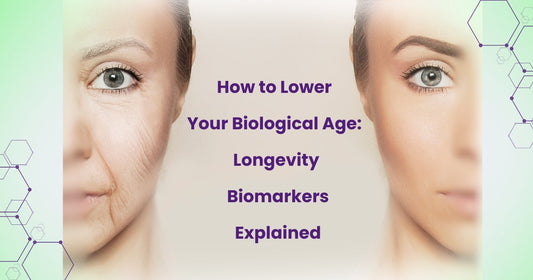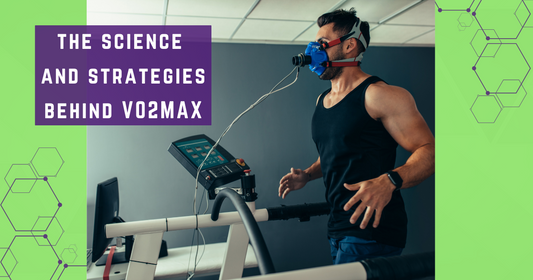The Immediate and Long-Term Benefits of Cold Plunge Therapy
Cold plunge therapy offers both immediate and lasting benefits for overall health and longevity. When you immerse yourself in cold water, your body experiences a range of physiological responses that can boost your health.
One of the most notable effects is the enhancement of the immune system. Cold exposure increases the production of white blood cells, helping fight infections. Moreover, cold plunging improves circulation by constricting blood vessels and then causing them to dilate, leading to better blood flow and oxygenation of tissues. This process also reduces inflammation, a key factor in many chronic diseases.
Cold plunges are also known for their mental benefits. The sudden exposure to cold stimulates the release of endorphins, improving mood and reducing stress. Regular cold plunging may also lead to better sleep, as it helps regulate your body's temperature and promotes relaxation.
How Cold Plunge Boosts Your Immune System
Cold plunge therapy significantly enhances immune function. Cold exposure stimulates the production of norepinephrine, a hormone and neurotransmitter that helps reduce inflammation and strengthens the immune response. This boost in immune activity can lead to fewer colds, faster recovery from illness, and an overall increase in resilience against diseases.
Additionally, cold plunges can improve the balance of various immune cells in the body, making the immune system more efficient. By regularly challenging your body with cold exposure, you may build a stronger, more adaptive immune system better equipped to handle both common illnesses and more serious conditions.
The Impact of Cold Plunge on Circulation, Inflammation, and Stress Relief
Cold plunging has a profound impact on circulation, inflammation, and stress relief. When you immerse yourself in cold water, your blood vessels constrict, which forces blood to move more efficiently through your system. This improved circulation ensures that oxygen and nutrients are delivered more effectively to your organs and tissues.
The reduction in inflammation is another critical benefit. Inflammation is a common underlying factor in many chronic diseases, including heart disease, diabetes, and arthritis. By reducing inflammation through cold exposure, you can potentially lower your risk of developing these conditions and improve overall health. Regular cold plunging can also accelerate muscle recovery after exercise by reducing swelling and soreness.
Beyond physical benefits, cold plunging plays a crucial role in stress relief. The cold shock triggers the release of endorphins and serotonin, which can help alleviate anxiety and promote a sense of calm. Additionally, cold exposure lowers cortisol levels, the primary stress hormone, leading to a reduction in chronic stress and its harmful effects on the body.
Hormesis: The Science Behind Cold Plunge and Longevity
Hormesis is a biological concept that explains how exposure to small doses of stress can benefit the body. Cold plunge therapy is a prime example of hormesis in action. When you expose your body to cold temperatures, it triggers a stress response that ultimately strengthens your body’s ability to handle more significant challenges.
This hormetic response involves activating various cellular repair mechanisms that can help prevent damage and promote longevity. The controlled stress from cold exposure can improve your body’s resilience, making it better equipped to deal with other forms of stress, whether physical or mental.
Understanding Hormesis: Why Stress Can Be Good for You
Hormesis might sound counterintuitive, but it’s a vital concept for understanding how our bodies adapt and grow stronger. When your body is exposed to a mild stressor, such as cold water, it triggers adaptive responses that enhance cellular function and overall health.
These responses include the production of heat shock proteins, which help protect cells from damage, and the activation of antioxidant pathways that reduce oxidative stress. By regularly exposing yourself to cold temperatures, you can harness the power of hormesis to improve your body’s resilience and potentially extend your lifespan.
Cold Exposure as a Powerful Hormetic Stressor
Cold exposure is a potent hormetic stressor that can stimulate numerous protective mechanisms in the body. These mechanisms include improved DNA repair, increased mitochondrial function, and enhanced autophagy, the process by which cells remove damaged components.
By regularly practicing cold plunge therapy, you can help your body become more resilient to stress and better equipped to handle the challenges of aging. This resilience can translate into a longer, healthier life as your body becomes more efficient at repairing itself and maintaining optimal function.
Cold Plunge’s Influence on Cellular Health and Body Systems
Cold plunge therapy has a profound impact on cellular health and the function of various body systems. One of the key benefits is the promotion of cellular repair and resilience. Cold exposure stimulates the production of proteins that help repair damaged cells and protect against future harm. This process is crucial for maintaining healthy tissues and preventing the onset of age-related diseases.
Moreover, cold plunging positively affects the cardiovascular and neurological systems. The improved circulation from cold exposure supports heart health by reducing blood pressure and improving blood vessel function. Neurologically, cold plunging can enhance brain function by increasing the production of neurotransmitters that support mood, memory, and cognitive performance.
Cellular Repair and Resilience Through Cold Therapy
Cold therapy, including cold plunging, plays a significant role in promoting cellular repair and resilience. When exposed to cold temperatures, your body initiates a series of protective responses that help maintain cellular integrity. These responses include the activation of pathways that repair damaged DNA, the production of antioxidants that neutralize harmful free radicals, and the stimulation of autophagy, which removes damaged cellular components.
By supporting these processes, cold plunge therapy can help slow down the aging process at the cellular level, potentially leading to a longer, healthier life. Regular cold exposure can also enhance the efficiency of your cells, making them more resistant to stress and less prone to dysfunction.
Cardiovascular and Neurological Benefits of Cold Exposure
Cold exposure has significant benefits for both the cardiovascular and neurological systems. For the cardiovascular system, cold plunging helps improve blood circulation by causing blood vessels to constrict and then dilate, which enhances blood flow and reduces blood pressure. This process can lower the risk of cardiovascular diseases and improve overall heart health.
Neurologically, cold exposure stimulates the production of neurotransmitters like norepinephrine and dopamine, improving mood, focus, and mental clarity. Regular cold plunging has also been linked to reduced symptoms of depression and anxiety and improved cognitive function. These benefits make cold therapy a valuable tool for maintaining both physical and mental well-being as you age.
Cold Plunge and Longevity: What Science Says
Scientific research supports the idea that cold plunge therapy can have a positive impact on longevity. Several studies have shown that regular cold exposure can increase lifespan by promoting cellular health, reducing inflammation, and improving cardiovascular function. Additionally, cold plunging has been linked to improvements in biomarkers associated with aging, such as telomere length and mitochondrial function.
One key study published in the journal Cell Metabolism found that cold exposure activated certain longevity genes, such as SIRT1, which are involved in cellular repair and metabolism. Another study from The Journals of Gerontology demonstrated that cold therapy could enhance mitochondrial biogenesis, the process by which new mitochondria are formed in cells, leading to improved energy production and reduced oxidative stress.
Moreover, cold exposure has been shown to influence the length of telomeres, the protective caps at the ends of chromosomes that shorten with age. A study published in Nature Communications revealed that individuals who regularly engaged in cold exposure had longer telomeres, suggesting a slower aging process.
These findings suggest that incorporating cold plunge therapy into your routine could potentially slow aging and extend lifespan by promoting cellular health and resilience.
Fascinating Facts About Cold Plunge and Longevity
Beyond the scientific evidence, cold plunging has a rich history and cultural significance across various societies. For centuries, people in Nordic countries, Russia, and Japan have practiced cold-water immersion as part of their traditions and health routines. These cultures have long believed in the rejuvenating effects of cold exposure, attributing their robust health and longevity to this practice.
In recent years, cold-water swimming has gained popularity worldwide, with enthusiasts reporting increased energy levels, improved mood, and enhanced physical fitness. Many of these individuals, some well into their 80s and 90s, attribute their longevity to regular cold plunging, supporting the idea that this practice may contribute to a longer, healthier life.
Historical and Cultural Perspectives on Cold Plunging
Cold plunging has deep roots in history, with ancient practices in cultures ranging from the Roman baths to the Finnish sauna tradition, where alternating between hot and cold was believed to cleanse the body and mind. In Russia, the "banya" or steam bath often ends with a dip in icy water, symbolizing a purification ritual. Similarly, in Japan, "Misogi," a Shinto practice, involves purification through cold water immersion, which is thought to purify the spirit.
These traditions highlight the longstanding belief in the health benefits of cold exposure, a practice now supported by modern science.
Anecdotal Evidence: Cold-Water Swimmers and Longevity
Anecdotal evidence from cold-water swimmers around the world further supports the link between cold exposure and longevity. Many long-term cold-water swimmers report not only improved physical health but also enhanced mental clarity, reduced stress, and a greater sense of well-being.
Some of the world’s oldest cold-water swimmers, like 100-year-old Mavis Hutchinson from the UK, attribute their long and healthy lives to regular cold plunging. These personal stories, while not scientifically conclusive, offer intriguing insights into the potential benefits of cold exposure for promoting longevity.




